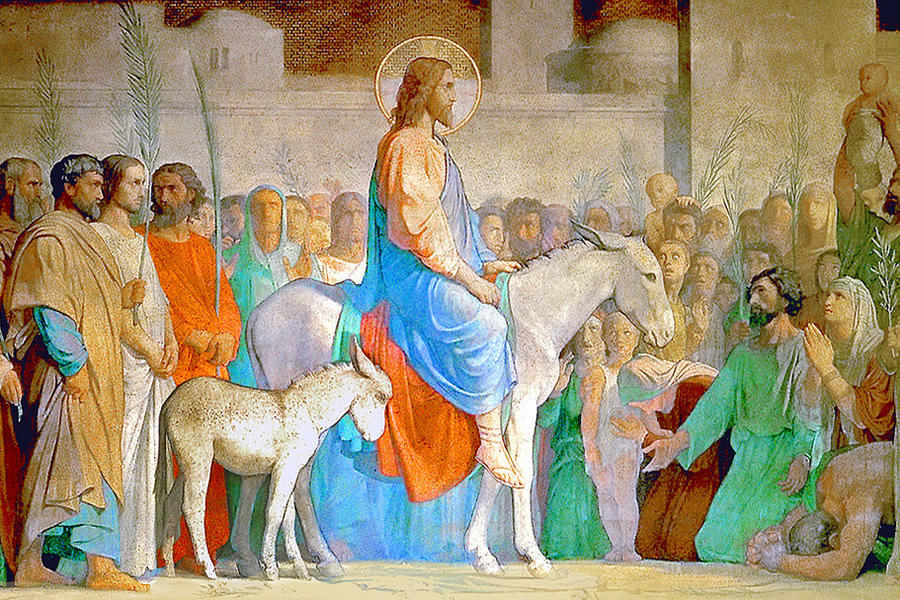
Happy Palm Sunday
04-03-2023Pastoral ReflectionsFr. Brian ManningPalm Sunday is the beginning of the Great Week - Holy Week. We know it takes a lot of the devotion and attention and also time, the time we have to gather ourselves and to gather with others to share in the suffering of the cross and the sure triumph of the Resurrection of Jesus. This Sunday which celebrates the reading of the Passion of our Lord and also Blessing and Distribution of Palm Passion is where it all begins.
This Sunday’s reading reminds us that Jesus entered humbly upon a donkey. He came as a man of peace, a man of the people - despite how we can be. On this Palm Sunday, the echoes of our familiar song of glory, laud and honor fade as we hear and ponder the long narration of Jesus’ passion, death, and burial. The readings from Isaiah and the letter to the Philippians help us retain some balance. Did you know that these first two readings are the same every year? Only the Gospels change. Each year, we read the passion narratives from one of the “eyewitness accounts” of Matthew, Mark, or Luke. The passion narrative according to John is decidedly reserved for Good Friday’s celebration of the Lord’s Passion.
This year’s, the Gospel is according to Matthew. We proclaim the story of that particularly long period of time from the Lord’s Supper on Thursday evening to his burial before sunset on the following Friday. Matthew’s account follows faithful the theme of his Gospel. Matthew’s address the Jews who would become followers of Jesus. He uses the Hebrew Scriptures once in the narration of Jesus’ entry into Jerusalem and five times in the narration of the Passion.
The first reading of Palm Sunday is from one of the five suffering servant songs found in the book of Isaiah. This reading is supposed to prepare us for the proclamation of the Passion. It sets before us the portrait of a just and dignified person who honorably bears the humiliation that he does not deserve.
Our second reading being a liturgical hymn illustrates the full circle from the Word’s union with the Father in heaven, to the Incarnation, to his glorification. For our sakes, he who was one with God did not cling to that exalted unity of being. For us, he took on the whole of human existence from birth to suffering to death. This was the source of his exaltation. Indeed, He is Christ and Lord.
According to Matthew’s Gospel narration of the passion and death of Jesus, we learn the only words of Jesus from the cross are those of deep anguish. His sense of abandonment is all we need to remind us that he knew the loss of all that his life stood for. We sense that He did not know how he would be released from this dark night of the soul and deep pain of the body.
We must always remember that we stand on the resurrection side of the story. We are in possession of the whole story. We are able to understand the Passion and Crucifixion in the bright light of the Resurrection. The apostles and disciples were not as fortunate to have space and time that we have. We have courage enough to hear the passion story, because it ends in life. It reverses the expectation that life ends in death.
On this day, Palm Sunday, the events that will be celebrated day by day during Triduum are narrated in their entirety. The Triduum (the three days) begins with the celebration of the Lord’s Supper on Holy Thursday and ends on Easter evening. During these most solemn days of the Church year, we will gather to reflect on the Paschal Mystery rendered present in our lives.
BACK TO LIST